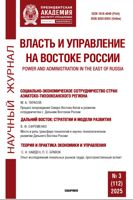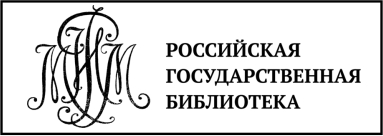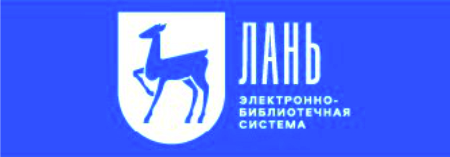The procedure for reviewing articles sent to the editorial office of the peer-reviewed publication "Power and Administration in the East of Russia"
All research and review articles must successfully complete the peer-review process before publication in the journal. This process consists of the following stages (described below). Please note that book reviews and reports on scientific events are not subject to peer review.
- The author sends the manuscript of the article that meets the necessary formal and stylistic requirements to: rio-dviu@ranepa.ru
- Upon receipt of the manuscript to the Editorial Office, the latter makes its initial review within 10 days and checks for compliance with general formal and qualitative requirements, including compliance with the subject of the journal. All submissions are checked with Antiplagiat service. In case of non-compliance with these requirements, the article is not accepted for consideration, about which the Editorial Board notifies the author.
- If the article is accepted for consideration, it is sent to at least two reviewers for feedback. Reviewers include external experts and the journal`s Editorial Board members. All reviewers are recognized experts on the subject of peer-reviewed materials and have had publications on the subject of the reviewed article for the last 3 years.
-
The review is carried out anonymously: the names of the author and reviewers are not disclosed to each other. The review to the author is given within 6 weeks.
Reviewers in their reviews express one of the following opinions:
- a) the article can be published without significant adjustments;
- b) the article is absolutely not ready for publication;
- c) publication is possible after a certain revision.
At the same time, the reviewer is guided by the following criteria:
- contribution to the economic and/or sociological sciences of the theoretical constructions and generalizations contained in the manuscript;
- empirical contribution, that is, how important and new is the primary material that is introduced into the scientific circulation in the manuscript;
- relevance and completeness of the used sources;
- the quality of research: design, working hypotheses, methodology, analysis, interpretation;
- composition of the article and clarity of presentation;
- the degree of reflection in the article of the current state of research in the claimed field.
Reviewers' reviews – both positive and negative – are immediately sent to the author as they become available.
- If the opinions of two reviewers do not coincide, the article is directed to a third reviewer or, the Editorial Board informs the author about a possible delay in reviewing the manuscript.
-
The decision on possibility of publishing an article in the journal is made on the basis of reviews (in the case of three reviewers – additional by the Editorial Board).
If the reviewers of the article recommend revision, the author is given the opportunity to resubmit the revised article for publication within 30 calendar days. After submitting a revised article, the Editor-in-chief makes a final decision on publication or rejection of the article within 14 calendar days based on the author’s incorporation of reviewer feedback and adherence to critical comments.
- Reviews of publication are kept in the publishing house and in the editorial office for 5 years. The editorial board sends copies of licenses or a reasoned refusal to the authors of submitted materials, and also undertakes to send copies of reviews to the Ministry of Science and Higher Education of the Russian Federation when the corresponding request is received by the editorial office.
















